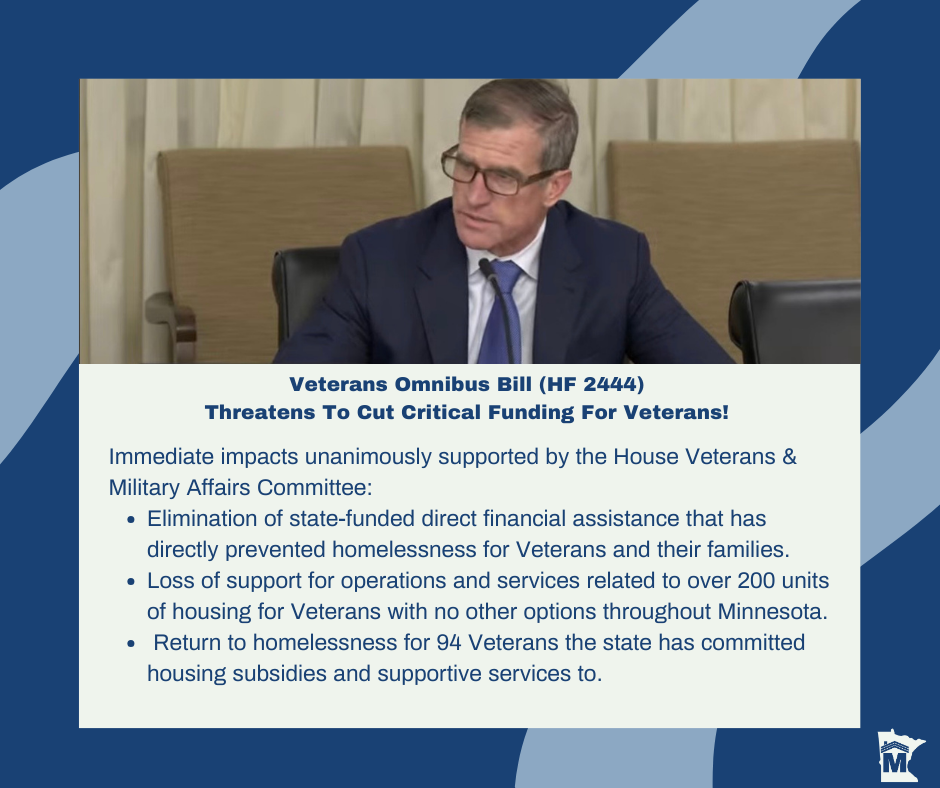Proposed Cuts Will Shatter Minnesota’s Veteran Homelessness Response

MACV is the leading nonprofit organization in Minnesota’s Veteran homelessness response system. This system has been built through federal, state, and local support and coordination into a nation-leading solution for ending Veteran homelessness. Veterans continue to become homeless each month, although the tools exist in our system today to support them in achieving long-term housing stability.
Eliminating funding as proposed in HF 2444 will effectively dismantle the system that has been built and the progress that has been made. Three areas of direct and immediate impact of this cut in funding include:
- Elimination of state-funded direct financial assistance that supported 669 unique Veteran households in the past 12 months alone. This financial assistance has directly prevented homelessness for Veterans and their families and has helped to achieve housing access and stability for those experiencing literal homelessness.
- Loss of support for operations and services related to over 200 units of housing throughout Minnesota dedicated to housing Veteran households who have no other viable housing options. The State of Minnesota, through the VSHO (Veteran Supportive Housing Opportunities) program, directly funded the purchase of 88 of these units across 12 properties since 2023.
- Return to homelessness of 94 veteran households that the state has currently committed housing subsidies and supportive services to through the MNVEST program.
Previous state leadership made ending Veteran homelessness a top priority and that focus identified gaps in the federal efforts to end Veteran homelessness. The role of the state’s funding has an outsized impact – these are the most valuable dollars for our mission as they fund programs specifically designed to fill gaps and needs not met by federal and philanthropic funding. Minnesota has proven our effectiveness in ending Veteran homelessness.
If these funds are eliminated, we anticipate immediate impacts leading to more than doubling the state’s Homeless Veteran Registry count within months – currently at 174, the lowest it has ever been. Long-term impacts will be higher levels of inflow into homelessness, reduced housing placements, and a growing veteran homelessness population over time.
Pulling funding from these initiatives is not just cutting the budget line. It denies veterans the opportunity to find stability and live with dignity. Veterans with a history of homelessness have a rate of suicide that is 186.5% higher than Veterans with no history of homelessness.